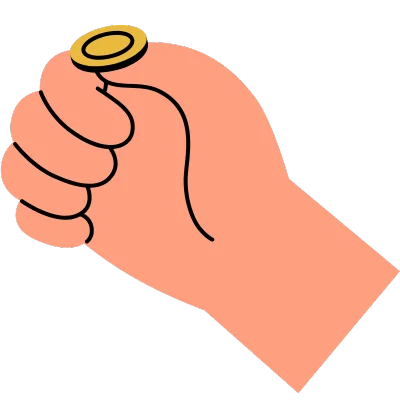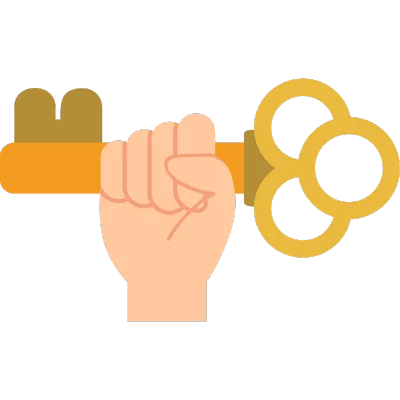Long-Term Betting Success: How to Handle and Survive Losing Streaks

Online sports betting is like riding a roller coaster—you’ll experience highs and lows along the way, even if you’re a seasoned professional. Losing streaks are inevitable for everyone. No one is immune to losing now and again on the sports betting apps. However, the thing that separates good and bad bettors is how you handle the circumstances. Like many other life events, it’s all about weathering the storm and keeping your head high.
Platitudes aside, it’s important to use strategic responses during a losing streak to help minimize potential losses and keep your approach to online sports betting healthy! Experienced bettors will already know these concepts, but anyone new to sports betting will want to keep these ideas and strategies in mind to make the most of their online sports betting ventures!
Understanding Losing Streaks
Losing streaks are bound to happen to all sports bettors. These are spells where you incur many losses—none of your bets or predictions seem to result in winning. Simply put, you’re placing your bets expecting them to pan out in your favor, and you keep taking a bunch of Ls.
There’s a common misconception that the more experienced you become in sports betting, the fewer losses you’ll take, but that’s not necessarily true. You can spend a lot of time using sportsbooks, which technically gains you “experience,” but if you’re not using a well-defined strategy and sound approach to placing your bets, you can expect to lose more often than you win.

Strategy is Better Than “Experience”
Having a good strategy in place guarantees that you end up on the winning side of the curve more often. Still, it can also help you avoid slipping into the negative psychological impacts of consecutive sports betting losses. A few examples of the dark psychological experiences bettors could endure from failed sports bets include things like:
- The compulsion to increase your bet size or the number of bets to offset losses incurred during a losing streak.
- You are becoming obsessed with planning your subsequent gambling sessions or preparing your strategy to make a big comeback, often at the cost of family, friends, or living their life.
- Betting more money than you can afford to lose and spiraling into debt or financial trouble.
These points don’t even scratch the surface of everything that could happen—how gambling losses will impact the bettor will look different from one individual to another. It won’t look the same for everyone. Some bettors could even maintain some sense of responsible gambling and only experience a few of these unhealthy gambling practices. For example, a bettor could always think about gambling to the detriment of their family, friends, job, or social life but still stay somewhat financially responsible, like sticking to their budget and not chasing losses.
However, some unhealthy compulsions can lead from one lousy mistake to the next. Sports gambling can be slippery, especially when enduring an unbearable string of losses. That’s why it’s essential to have sound strategies in place that act as a guide on what to do in these circumstances–you can come out the other end relatively unscathed the more you put these betting disciplines into practice.
Assessing Your Betting Strategy
If you take nothing else away from our guide on dealing with losing streaks, know that self-assessment is critical for determining if your losses are coming from bad luck or a poor betting strategy on your part. When we say that even professional bettors go through losing steaks, they mainly deal with the bad luck end of things. These seasoned pros know the best practices for dealing with losses, so a poor betting strategy is not responsible for their hardships.

Tips for Accessing Your Strategy
However, recreational bettors and the general betting public (that is, those who want to improve their betting strategy and put in the time to make it a reality) need to analyze how they’re betting on sports and if they’re making some poor decisions that are adding to their overall losses. These are a few things you might want to consider about your current strategy to make improvements:
- Analyze the size of your bets—you want to keep them proportionate to your bankroll size. Use percentage or unit betting to avoid blowing through your entire balance. You might want to keep your bets down to 5% or 10% of your total bankroll.
- Stick with moneylines, point spreads, and totals if you’re an inexperienced bettor. Getting parlays, teasers, futures, or props correct takes much more research, knowledge, and experience to pull off.
- Knowledge is power. Bet on the sports markets, teams, or matchups you’re most familiar with. You have a better chance of winning because you know the fine details of the scenario and can make a good call on a possible outcome.
- Don’t back too many selections. You could be losing more money than you’re making because you’re focusing on the volume of bets placed instead of the quality and finding value.
- Look for value in the odds you place on your bet slip. If you keep an eagle eye on your sportsbook, you’ll notice that value will change for a game based on factors like the weather, a new team lineup, or player injuries. Finding the best value bets is important, so watch the odds diligently to grab opportunities when the numbers change.
Again, these are only a few strategies for pinpointing flaws in your betting approach. There are plenty of other methods for honing your betting strategy. Still, many of them are more advanced concepts better suited for professional bettors who bet on sports for a living or have had more success and experience. These are the simple baseline concepts that newer or recreational bettors can use to course-correct their current approach and improve their chances of winning more often.
Importance of Bankroll Management
Not only can you fare well through a losing streak by changing your betting approach and embracing practices that help you minimize potential losses, but good bankroll management can also assist you as you deal with sports betting losses!

Bankroll Management Defined
Bankroll management is the practice of responsibly handling your gambling funds. It includes disciplines like sticking to a budget and using betting units to avoid losing too much money when the losing streaks inevitably occur. On the last point, bankroll management is a potent tool for managing risk and keeping afloat during the low points of your betting experience.

Best Practices for Correct Bankroll Management
Follow these tips to correctly adjust the size of your bet and manage your funds in a conservative manner that can lead to steady growth over time:
- Use percentage or unit betting techniques to gauge your bet size. Keep the size of the bet the same for all bets regardless of how much perceived value there may be on specific games, teams, or competitors. It’s safe to place bets that are 5% or 10% of your total balance so you don’t burn through your money. This helps you place bets proportionate to your balance because the percentage adjusts the amount of your bet up or down as you win or lose.
- Use banking options that separate your gambling funds from your bank. We recommend not using major credit cards or online banking to deposit or collect money. Instead, we recommend you use the Play+ card or an e-wallet like Venmo or PayPal because these are separate accounts where your gambling funds are kept far away from your regular money. This can minimize the temptation to go beyond the limits of your gambling budget.
- Set up a gambling budget, an allotted amount of money used strictly for your sports betting sessions. This amount of cash you can afford to lose is completely separated from the regular money you use for expenses.
- Set up time limits for your session. While some argue that good sports betting involves watching the odds constantly to capture good value, od bankroll management and avoiding the traps that losing streaks present include limiting your time betting on sports. Allot time to your session as you would allot funds to your account.
- It’s better to take breaks and be willing to walk away from your sports betting app when you encounter a string of losses. And your bankroll will be thankful you did! Some downtime gives you time to clear your head and return to logical, non-emotional thinking. Plus, you’re not risking any more money during this time!
Once you begin employing some of these basic concepts in your sports betting ventures, you may become more disciplined and steady in your approach. You stick with a sound plan to tackle your losing streak—you’re less likely to fall prey to emotional traps and make foolish decisions like chasing losses. Ain’t no one got time for that.
For further reading on sound bankroll management, check out How to Effectively Manage Your Bankroll for Gambling Success.
Avoiding Common Traps
We’ve alluded to a few of these betting traps already, but to anyone not reading the entire guide, let’s get you up to speed on some of the betting mistakes you want to avoid, like betting in anger or frustration and thinking you’re going to hero if you place enough winning bets to offset your losing streak.

Chasing Losses: Bettors place one large wager or a higher volume of new bets to offset a string of losses, hoping to recover their money. There’s a chance you’ll lose these new bets and be out even more money. It’s the most common betting trap that new bettors find themselves in. During a series of bad bets, the best thing to do is walk away from the session and return when you’ve cleared your head and dealt with your anger or frustration.
Betting with Emotion: You might be frustrated or angry about your losses. You might even turn to gambling to deal with stress or trauma. Betting with emotion can lead to bad decision-making. The best bettors know when to walk away, start thinking logically again, and return to betting on sports when they’re in a better headspace.
Gambling While Drunk: For the love of everything holy, don’t bet on sports if you’re under the influence of drugs or alcohol. Bad decision. Your faculties aren’t all there, and you’re almost guaranteed to do something stupid with your money. Your whole approach needs to be centered on sound reason and logic. Two or three beers will release your inhibitions, and that’s the last thing you want when dealing with a string of losing bets.
Betting as an Income Source: Unless you’re a millionaire with a ton of play money to work with or a professional bettor who’s already made the basic mistakes years but gone on to make a name for yourself, you shouldn’t be betting on sports as a way to make money or generate income. We don’t want to tell you how to live your life, but you’re far more likely to fall into emotional betting and make bad financial decisions if your livelihood hangs in the balance.
The name of the game is rational decision-making. After reading about our strategies and techniques, one of the most important concepts you can walk away with is staying logical and executing a consistent, sound betting approach when facing losses that hurt. Stick to your playbook. If you need to step away for a while, that could be the biggest favor you can give yourself!
Diversifying Betting Portfolios
We can best explain diversifying your betting portfolio by the idea of not putting all your eggs in one basket. Placing all your eggs in one place leaves you completely vulnerable because you’re completely out of eggs if the fox comes and steals them away. It’s best to spread your eggs out in different places to spread the risk around.

Insulate Yourself Against Losses By Spreading Out the Money
The same applies to betting on sports. You’re doing it wrong if you have most of your money riding on one big bet. It’s all about having bets going on multiple games or matches and different types of bets (moneylines, totals, point spreads, etc.), so any wins or losses are spread out. You have much to lose if a big chunk of your money is riding on a single bet. Spread that chunk out over multiple bets, and you’ll see minimal losses and steady gains as long as you’re researching and making good bets based on value.

Two Sounds Methods for Diversifying Your Bets
Try out a couple of these methods to broaden betting activities and stabilize potential outcomes:
- Don’t focus on a single type of bet. Bet money lines, totals, and point spread. It’s one of the best ways to diversify your betting activity quickly. If you’re inexperienced, avoid delving into parlays, props, or futures (exotic bets).
- Try placing as many bets as possible on the markets, players, or teams you know well. But don’t place so many bets that you cannot keep up with what’s happening. Instead of making two bets, try five and spread the money you would put on your two bets to five.
If one of your bets doesn’t work out, you have other bets that could make up for any losses you might experience. And using smaller units or a smaller percentage of your bankroll softens the blow of the loss. Any gains you make will be small, incremental steps, but good sports betting is more about long-term gains than immediate, big payouts. You want to play the long game to make steady progress instead of getting a quick dopamine hit.
Embracing a Long-Term Perspective
If you’re a recreational bettor, you bet on sports as a hobby. You wouldn’t consider yourself an expert, and the last thing you’re using sports betting for is as an income source. However, recreational bettors can benefit significantly from seeing sports betting as an investment, a hobby that can lead to long-term success through strategic moves and steady gains over time.

High and Low Variance Bets
To become successful in making small gains over time with your sports bets, it’s essential to know about variance in betting. There are high-variance bets and low-variance bets. High-variance bets are more likely to deviate from the expected value, making it harder to predict correctly. Meanwhile, low-variance bets fall closer to the mean or expected value.
High Variance Bets: These bets have high odds, so there’s a lot more risk associated with these bets. There’s a high chance of losing, but you can get a high payout if you get it right! An example of a high-variance bet would be wagering on an underdog team or competitor or making prop bets where you’re wagering on a single player to score the most points or make the first touchdown.
Low-Variance Bets: These bets have fewer possible outcomes, making you more likely to win them. However, the payouts are much smaller. A few examples of a low-variance bet are betting on the favorite to win, betting on point spreads, or betting the over/under on the final combined score. In broad strokes, these low-variance bets over a 50/50 outcome, many similar to betting on a coin toss.
If you’re playing the long game with sports betting, you’re better off going with the low-variance bets. Sure, you don’t get the flashy, big payout that satisfies you, but you’re making small investments and incremental progress as you gain small victories.

Low Variance Bets and the Coin Toss Idea
But it’s important to know that even with low-variance bets where the odds are winning, either way, are like a coin toss (50/50), the variance of these bets coming through in your favor can seem more extreme if you’re only looking at the five to ten bets you might in your first week.
Have you ever tossed a coin before and called out heads or tails? If you have, you’ll know that the result of the coin flip isn’t an even back-and-forth situation. The coin could flip to heads four times in a row, flip to tails once, back to heads twice, once more to tails, and back to heads five times. You get the idea.
Now, if you were to flip the coin 3,000 times, you’d get closer to an accurate representation of the 50/50 odds. After 3,000 flips, you’d get close to something representing 1,500 heads and 1,500 tails, though it could look like 1,494 heads and 1,506 tails. The point is that fewer coin flips could make the odds look way more lopsided than they really are if you give it time.

Expect Swings with Low-Variance Bets
You must keep this idea in the back of your head, even when placing low-variance bets like money lines, point spreads, or totals. Though it’s a technical 50/50 chance of your bet coming through, you need to think about the randomness in that variance, which could skew final results one way or another. It’s important not to be jarred by these swings but to know that things will even out over time. Just make the most well-informed bets you can and look for value in the odds.
Learning from Losses
To improve your betting strategy, you must be open to examining your losses to analyze each bet and understand what went wrong. Turning your losses into learning opportunities is how you can get past the initial growing pains of being a novice or recreational bettor and move on to more advanced betting and bankroll management techniques.

What Information Do I Log?
To give you an idea of where to begin in tracking your bets, start recording the following information on all your sports wagers so you can reference it later:
- Date of the bet
- The matchup
- The type of bet placed
- Odds
- Spreads or totals
- The amount of your bet
- Your profit
- Final result

Betting Mistakes a Log Can Help You Uncover
We’d encourage any of our readers to keep a detailed betting log to track performance and use the information to gain insights and unlock revelations on how they can hone their approach. A betting log can help you pinpoint mistakes such as:
- Not adjusting your betting percentage or unit size to match the size of your bankroll
- Backing teams, players, or games you’re not familiar with
- Betting your favorite teams or players with no regard for finding value in betting on an opposing team or player
- Placing too many bets at once
- Placing too many high-variance bets (parlays, props, etc.)
Tracking your progress can help you pick up on good and bad betting patterns you may have gotten into. Use some of our tips and strategies to replace the bad habits you’ve picked up and employ the excellent betting habits you learned from your experiences.
Seeking Professional Advice
Aside from reading online guides that outline dealing with losing steaks, you can seek the advice of more experienced sports bettors. You may know someone personally who has had a lot of success in sports betting, and they could be a wealth of knowledge. Take advantage of this relationship to gain insights into dealing with sports betting losses and responsible bankroll management.
Suppose you don’t know a professional or seasoned sports bettors personally. In that case, you can always look for online content like videos, essays, or articles where the pros will share their experiences or strategies. However, don’t be surprised if these bettors don’t share their top secrets or tricks with you!

Resources for Gambling Problems/Addictions
Now, on to a different kind of professional advice. If you’re struggling with the urge to bet recklessly on sports, you may have a gambling problem or even a gambling addiction, and it’s best to deal with these ordeals by getting professional help. Use the following resources to seek a support group or online help so you can confront problems or addictions head-on and have the tools you need to gamble responsibly.
Gamblers Anonymous: This 12-step program for recovering gamblers is available only to people who desire to overcome their addiction and bad habits. Check out www.gamblersanonymous.org.
Gam-Anon: A support group for the loved ones of problem gamblers where they can get encouragement from others.
Gam-A-Teen: A support group for the children of problem gamblers where they can get encouragement from others.
The National Council on Problem Gambling: Independent of the gambling industry, the NCPG advocates for problem gamblers, their families, and children. Check out the treatment information and find counselors nationwide when you visit www.ncpgambling.org.
National Problem Gambling Helpline Network: This hotline is run by the National Council on Problem Gambling. Call 800-522-4700 to access local resources to help you with your gambling addiction.
Substance Abuse and Mental Health Services Administration: This is a division of the US Department of Health and Human Services. It’s a treatment referral service for gamblers with serious addictions. Call 1-800-662-4357 or visit www.samhsa.gov/find-help/national-helpline.
If you feel it’s best not to bet on sports at all or engage in any other kind of online gambling, we recommend pulling out the big guns: access the voluntary self-exclusion your sports betting app offers. You can add yourself to this list, which essentially bans you from using the platform for a specified period, like one, three, or five years.
Maintaining Healthy Betting Habits
To have the best possible experience and most harmonious outcome with online gambling or sports betting, it’s essential to maintain a healthy relationship with the activity. The last thing you’re looking for is having this hobby marred by emotional or financial stress or an obsessive compulsion to go overboard in your wagers. There’s a balance that comes with enjoying sports betting (making good bets and managing your bankroll responsibly) and keeping your mental health a top priority.

Strategies for Building a Healthy Relationship with Sports Betting
Try using some techniques to maintain a healthy relationship with online sports betting. If you’re dealing with gambling addictions, it might be better to add yourself to a self-exclusion list and seek a support group. However, those who are dealing with minor problem gambling issues can significantly benefit from using these strategies during their sports betting sessions.
- Take regular breaks. It gives you time to get into a different headspace and not let your current session consume you.
- Put time limits in place on your sessions. Don’t let sports betting consume your life. Make time for other activities and your friends and family.
- Have realistic expectations going into your session. You won’t win thousands of dollars every time you hop on. Expect to lose and be excited every time you can win and build your bankroll in small increments.
- We’ve said it a million times, but don’t chase your losses! Get out while you’re behind and take time to regroup mentally before going back in.
- Find someone who can keep you accountable for your goals. This could be a friend or family member who’s familiar with sports betting and has developed some skills or picked up some tools to bet on sports in a healthy manner.
For additional insights on healthy betting habits and maintaining a good headspace while betting on sports, check out our article about Integrating Wellness and Gambling, where we outline conscious betting concepts like breathing exercises, post-session reflection, and setting up reasonable expectations.
Conclusion
If you didn’t take the time to read our entire guide on surviving a losing streak in sports betting, have no worries because we’ve summarized the key points below. If you’re suffering a string of losses, don’t get discouraged, and don’t get gung-ho trying to win what you lost back. Apply these principles, stay calm, and stay the course—these are the best ways to deal with sports betting losses.

Key Takeaways
- Don’t increase your bet size or the number of bets to offset losses incurred during a losing streak. This is called chasing losses, which usually results in more lost money. Don’t chase your losses unless you have deep pockets and can employ an advanced loss recovery strategy!
- Keep the size of your bet the same, no matter how good your odds are. Make sure it’s a conservative percentage of your bankroll, like 5%. Adjust your bet based on how much your bankroll grows or shrinks.
- Keep your bets diversified by placing many different bet types (moneylines, totals, point spreads, etc.) and place small bets on multiple games or matches to spread the risk around.
- Take reasonable breaks from your sports betting session. Set up time limits on your session. Spend time away from betting with friends, family, and other activities. Don’t let a losing streak consume you and ruin your life.
- Bet only what you can afford to lose. Set up a strict budget. Don’t go over. Use banking methods to separate your gambling funds from your regular money (Play+ card, e-wallets, etc.).
- Stick to low-variance bets like moneylines, point spreads, and totals if you’re new to online sports betting. Avoid high-variance, exotic bets like parlays, teasers, futures, or props because they have many more potential outcomes.
- Stick with the sports markets, teams, or matchups you know, and don’t back too many selections if you cannot keep up with the action. Don’t always back your favorite teams—back an opposing team if there’s good value in the bet.
- Log all your sports bets to pinpoint holes in your current betting strategy. Record the date of the bet, the matchup, the type of bet placed, the odds, the spreads or totals, the amount of your bet, your profit, and the final result.
- Don’t bet based on emotion. Stop betting if you get angry or frustrated during your session. Clear your head and return to sound, rational thinking before placing another bet.
- Don’t bet on sports if you’re high or drunk. Your faculties aren’t there, and you’re prone to making dumb decisions. If you’re already losing, being under the influence will cause you to spiral into further losses.
- You shouldn’t be using sports betting as a way to generate income. This takes away the fun from online betting because the stakes are much higher—it’s your livelihood on the line. If you suffer a series of losses, the stress to recover money could cloud your judgment and cause you to make a bad decision. Too many things could go wrong for you to bank on sports betting as your primary source of income.
We mentioned earlier that the name of the game when you’re dealing with sports betting losing streaks is rational decision-making. However, we’d add resilience and strategic adaptation to this list. These principles will lead to long-term betting success and overcoming the inevitable losing steaks along the way!

Alyssa contributes sportsbook/online casino reviews, but she also stays on top of any industry news, precisely that of the sports betting market. She’s been an avid sports bettor for many years and has experienced success in growing her bankroll by striking when the iron was hot. In particular, she loves betting on football and basketball at the professional and college levels.








